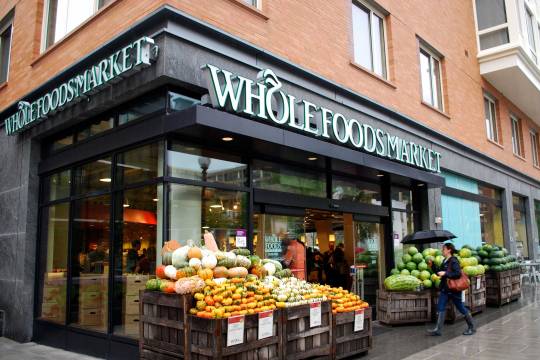
Last week, John Mackey and Walter Robb, co-CEOs of Whole Foods, admitted to a pricing faux pas. The New York City Department of Consumer Affairs (DCA) discovered that area store employees were mis-weighing and, in turn, mis-pricing prepared sandwiches, juices and sliced fruits.
In fact, inspectors described it as "the worst case of mislabeling they have seen in their careers.” In an attempt to throw some sand in the media fire that set ablaze, Mackey and Robb filmed a video apologizing and attempting to rectify the situation with consumers.
But will these efforts simply leave a sour taste in people’s mouths? Will their loyalty inevitably expire? The RTP editorial team shares their thoughts:
Debbie Hauss, Editor-in-Chief: This is a tough one. Generally, I would say Whole Foods handled this incident appropriately by apologizing and making a commitment to correct the situation chain-wide. But the DCA report was rather damning and Whole Foods CEO John Mackey is no stranger to controversy. Most recently he compared Obamacare to Fascism; and several years ago he used a pseudonym on Twitter to criticize a competitor, Wild Oats Markets, for seven years. So while I do like Whole Foods and shop at my local stores frequently, Mackey is not on my favorite CEO list.
Alicia Fiorletta, Senior Editor: I find it funny that Whole Foods’ co-CEOs said the pricing errors benefited “both the retailer and consumers,” however, the New York City Department of Consumer Affairs said that the instances where the consumers benefited were very limited. Either way, I don’t think the people who shop at Whole Foods necessarily care about being overcharged here and there for pre-packaged items and sliced fruit. The reality is that they go to Whole Foods for the brand and for the experience. Would this irk a few folks? Absolutely. But I think the grocer’s new “Millennial friendly” store concept drew more negative remarks than this story.
Rob Fee, Managing Editor: While there is no doubt that this situation resulted in a black eye for Whole Foods, I expect it will recover quickly. However, it’s troubling that this is not the first time the chain has been called out on this. Although I believe that most customers expect to pay more when shopping in a Whole Foods store, nobody wants to get ripped off. Unfortunately, it looks like many are. This situation is not unique to Whole Foods. In fact, with 77% of checked stores in New York also showing at least one violation, it might be the norm throughout the industry.
Kim Zimmermann, Senior Managing Editor: Having covered the grocery segment of retail for quite some time, I can tell you this isn’t uncommon. While this does seem like an orchestrated effort, rather than just a random error, I think Whole Foods acted accordingly and is working to correct the problem. Mackey is a certainly a target due to his controversial stands, so this probably got more attention than it would have if other chains were called out.
Glenn Taylor, Associate Editor: I’m glad it appears that Whole Foods is going out of its way to fix the situation ASAP, taking full responsibility for the wrongdoing. It is concerning that it was occurring on such a wide scale, but with state officials breathing down their neck I can’t see them allowing it to happen again. From a loyalty perspective, I sense that many people who choose to shop at Whole Foods do so because they aren’t getting specific items in any other location. In guaranteeing its consumers that the company won’t overcharge again, people wouldn’t be so easily swayed to end up at another grocer for their specific purchases.
Brian Anderson, Associate Editor: It seems as though blame is being put on the employees, which is probably going to have the biggest negative impact for the company, in my opinion. Definitely more training will be given to Whole Foods’ employees, but throwing all the blame on them can lead to negative customer experiences in the long term if it goes unchecked. As for brand loyalty, I believe this issue will not have that big of an impact in the long term. Mislabeling seems to be a somewhat common issue to the general retail space, as well, so that’s something to keep in mind: Whole Foods is not the only violator.
What are your thoughts on Whole Foods’ pricing paradox? Share your thoughts in the comments section below!






